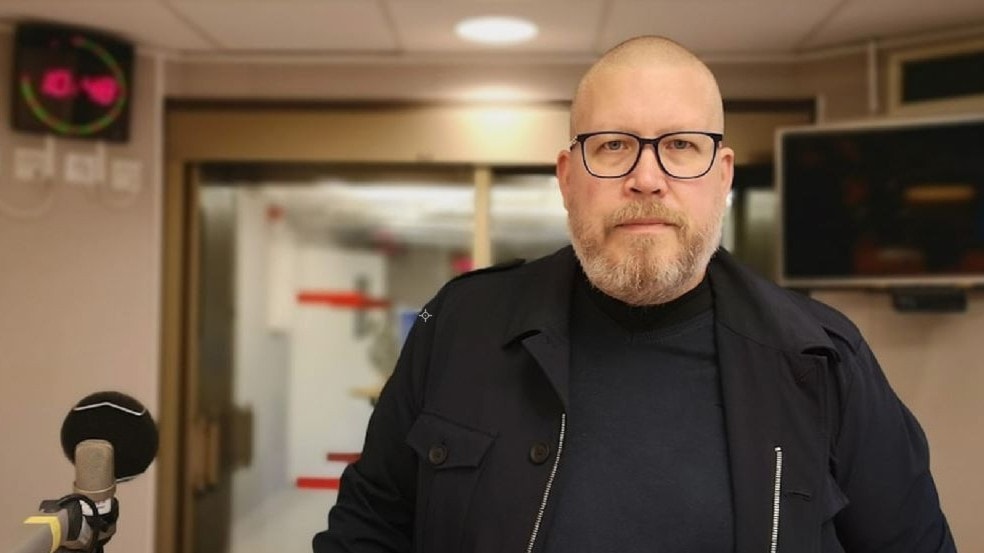Full credit to
@Gvan
Here is the transcript:
"
Response to Interpellation 2024/25:21 on Secure and Sustainable Access to Minerals and Metals
Statement 78 by Energy and Industry Minister EBBA BUSCH (KD):
Madam Speaker! Isak From has asked me if I am considering any new initiatives to clarify the responsibilities of the relevant authorities regarding the permitting processes for the mining and minerals industry and if I intend to take other necessary measures to simplify and shorten the permitting processes for the industry.
Increased access to minerals and metals is necessary to enable the green societal transition, strengthen competitiveness, electrify Sweden, and enhance Sweden’s defense capability. Sweden is currently Europe's leading mining nation, and we intend to remain so. We need more mines to reduce Sweden's and the EU's dependence on raw materials from third countries, and the government is therefore working purposefully to streamline the permitting processes while maintaining high environmental standards.
For example, the government has decided on changes to the Environmental Review Ordinance and the Off-road Driving Ordinance, which entail regulatory simplifications for prospectors. The government has also amended the Minerals Act, meaning that a Natura 2000 permit will no longer be a prerequisite for an application for an exploitation concession to be granted. In mid-December, the inquiry into shortened and simplified permitting processes under the Environmental Code will also report on its assignment. I look forward to reviewing this inquiry, which will take a comprehensive approach to Swedish environmental permitting under the Environmental Code.
In the budget proposal for 2025, the government proposes a series of initiatives aimed at improving the conditions for authorities to speed up, simplify, and work more efficiently with permitting and supervisory processes, which will also benefit the mining and minerals industry. This includes investments in the Mining Inspectorate, Swedish Courts, county administrative boards, and the Swedish Environmental Protection Agency.
Madam Speaker! The government is also working to ensure the successful implementation of the EU regulation on critical raw materials, which aims to secure the EU's access to a safe and sustainable supply of critical raw materials. Therefore, the government is proposing additional funding for the establishment of contact points for permitting processes, which will contribute to simplified and coordinated permitting processes in areas such as the extraction of critical raw materials.
The single most important measure for the renewal of the mining and minerals industry is actually the discovery of new deposits. Therefore, starting in 2024, the government has given the Geological Survey of Sweden (SGU), the responsible authority, a permanent enhancement in its work to map ore-potential areas. This assignment represents the largest investment in several decades to map ore-potential areas in Sweden. This demonstrates that strengthening and developing Sweden’s mineral industry is a priority for the government, not just in words but also in action.
In conclusion, I would like to highlight the newly established Green Acceleration Office. The office is led by two industrial coordinators who will accelerate Sweden’s decision-making processes to facilitate corporate investments that make Sweden greener and richer, which also includes establishments within the mining cluster. The work will promote coordination between public and private actors. The industrial coordinators are tasked with bringing all relevant parties to the same table — for example, authorities, municipalities, and companies needed in a decision-making process — to jointly move projects forward quickly.
The Green Acceleration Office will also prepare decision-making materials for the government to address any potential obstacles identified. The green transition and the Green Acceleration Office are central parts of the work for a greener and richer Sweden.
Statement 79 by ISAK FROM (S):
Madam Speaker! It’s not a bad thing that we get to discuss these important future issues. I also thank you for the answer, and I will come back to it.
Madam Speaker and audience! I posed the interpellation based on the impression that the government is somehow on track since it wants to dismiss the mandates presented by the Riksdag, requiring the government to come back and explain how it plans to proceed with shortening permitting processes and reducing conflicts.
But the reality is that more applications are ending up on the government's desk. It has become a ping-pong process that no one benefits from. No one thinks it’s a good process when authorities and the government send cases back and forth. According to LTU, Luleå University of Technology, there is growing opposition to the mining industry. LTU has mapped out 16 ongoing conflicts, which unfortunately will not be resolved by the response Ebba Busch has given in this interpellation.
Madam Speaker! Right now, major and important projects related to access to Sweden’s and Europe’s strategic rare earth metals are stalling. The question then is whether this is the investment climate that will lead us forward. Is this what will make more companies dare to invest? Is this what will make Sweden and Europe less dependent on China?
We can observe that a mining discovery usually creates concern in the area where the mine is supposed to be located. This applies whether it’s in Ortviken in Jämtland, where a company wants to extract vanadium, or if it concerns graphite in Vittangi or fluorite in Storuman. There are more examples. In every place where someone wants to extract a metal, a mineral, or a particularly rare earth metal, conflicts arise. These are conflicts that will be appealed somewhere, and then they will end up on the government’s desk. But will the government continue to send cases back to the Mining Inspectorate? What is needed is more guidance, and I hope the government is clear in its directives and communications with the Mining Inspectorate. The Mining Inspectorate has itself identified that municipalities need higher competence to handle these cases, and the government and the responsible minister must ensure this.
Statement 80: Minister of Energy and Business, Ebba Busch (KD):
Mr. Speaker, I would like to begin by thanking Isak From for bringing up this topic. It is close to my heart, and I know it is also important to Isak From and many others in this chamber. We need to accelerate and collaborate as much as possible. This is truly an issue for “Sweden Inc.” Mining policy is, in many ways, geopolitics, and I believe that was the point Isak From was making in his speech.
Just last weekend, we heard on Swedish Radio that China has stopped exporting graphite to Sweden. Graphite is a crucial component in electric vehicle batteries and a raw material that China dominates. It is estimated that they control around 85–90% of the value chain for battery graphite nodes.
Talga is a company that wants to mine graphite. According to the company, their ambition is to meet 16.2% of the EU's demand for natural graphite by 2030. The company also plans to produce over 10% of the EU's demand for anode material in the same timeframe. This could increase Europe’s independence in a geopolitically challenging situation. We both agree that it would be beneficial if graphite mining could start as soon as possible in Sweden.
However, if Member From wishes to ensure the swift extraction of these important minerals, it would have been helpful to receive a bit of support from him in discussions with party colleagues in Kiruna. According to reports, the company, together with the Kiruna municipality, began developing a detailed plan for mining activities as early as the beginning of 2021, with a schedule for completion in the first quarter of 2022. At the beginning of 2024, it became clear to the government that no detailed plan had been prepared, and the company submitted a so-called planning order to the government. The Social Democratic-led municipality then clearly rejected the detailed plan.
At the same time, media reports suggested that the municipality would be more positively inclined toward the mine if the company gave something back to the municipality, such as building housing or funding municipal activities. I won’t specifically comment on this claim, but it would be unfortunate if we ended up in a situation where Swedish municipalities use their local planning monopoly to pressure individual companies into activities other than extraction. Of course, I don't hold a member of the Swedish Parliament responsible for this, but it’s an example of where we need to cooperate across party lines and between the national, state, and regional levels. I also want to be clear that I do not rule out measures that could make local municipalities more willing to say yes. We are working on such measures, for example, regarding onshore wind power.
The government has permanently increased general state grants in the budget proposals for 2023 and 2024, and we are working in other ways to support municipalities. I really want to emphasize that, according to some estimates, the mining cluster accounts for 20% of GDP regionally and 5% of jobs in Västerbotten and Norrbotten. We need to protect this, and it could grow even more. But to make that happen, we must work together, from right to left, nationally and regionally, to get this done.
I agree with the analysis of the urgent need to increase graphite self-sufficiency. It would benefit both Sweden and Europe.
Statement 81: Isak From (S):
Mr. Speaker, let me be clear: we have had dialogue with our party colleagues, and we believe it is completely unacceptable for the company to be blackmailed. However, we fully support Kiruna Municipality in raising issues about the need for more housing and additional measures. This is something both the Parliament and the government must take seriously. Today, there is a significant lack of housing and available land for construction.
The clear message of demands that I have given to our party colleagues in Kiruna must also be made at the national level. It cannot be part of a blackmail situation against the company. That is why I fully support the company’s request to the government to make a decision on a planning procedure, which the government can do. I am fully aware that it is another minister in the government responsible for this, but I believe it is a collective decision-making process within the government, so this should be able to be resolved.
This also highlights a lack of knowledge. Just as the Swedish Geological Survey (SGU) points out, many municipalities are now quite concerned about what this will mean: “What will it mean if we are going to mine? What will it mean for our water?” Here, we undoubtedly need to increase knowledge.
I also support the Critical Raw Materials Act. It is important that we back it and are involved now, but it will also mean that to get the necessary permits, all levels must be included. The local level must feel included; otherwise, we will end up in the unfortunate situation we have now, where the government and SGU are sending cases back and forth, and the fluorite project on Kyrkberget is once again on the government's table to deal with.
This is unfortunate for investment interest in Sweden, I want to point out. More efforts are needed than what the government mentions. Some very important changes have been made. Part of the Natura 2000 change made by the government is based on the investigation initiated by the Social Democratic-led government. That was very important, and many welcome the change and see it as an improvement.
Unfortunately, this coincides with other issues. I have now had two debates with Minister Romina Pourmokhtari regarding limestone mining. It turns out that we have a severe shortage of limestone, which is now affecting our companies. Mining, mineral companies, and the steel industry in northern Sweden have been hit with both more expensive limestone and longer transportation distances. At the same time, we have a government that denies permits. This is ultimately contradictory."






